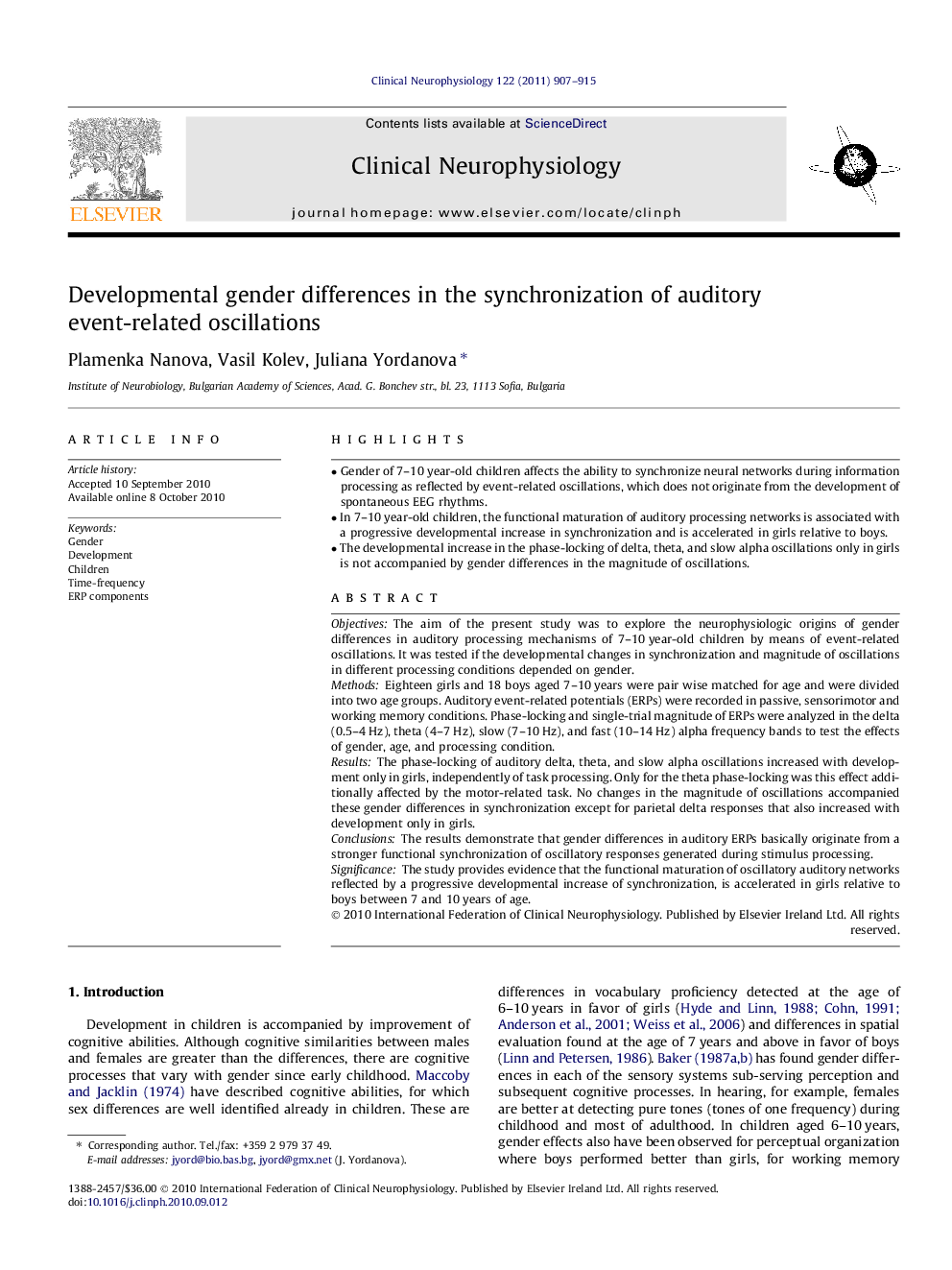| Article ID | Journal | Published Year | Pages | File Type |
|---|---|---|---|---|
| 3044468 | Clinical Neurophysiology | 2011 | 9 Pages |
ObjectivesThe aim of the present study was to explore the neurophysiologic origins of gender differences in auditory processing mechanisms of 7–10 year-old children by means of event-related oscillations. It was tested if the developmental changes in synchronization and magnitude of oscillations in different processing conditions depended on gender.MethodsEighteen girls and 18 boys aged 7–10 years were pair wise matched for age and were divided into two age groups. Auditory event-related potentials (ERPs) were recorded in passive, sensorimotor and working memory conditions. Phase-locking and single-trial magnitude of ERPs were analyzed in the delta (0.5–4 Hz), theta (4–7 Hz), slow (7–10 Hz), and fast (10–14 Hz) alpha frequency bands to test the effects of gender, age, and processing condition.ResultsThe phase-locking of auditory delta, theta, and slow alpha oscillations increased with development only in girls, independently of task processing. Only for the theta phase-locking was this effect additionally affected by the motor-related task. No changes in the magnitude of oscillations accompanied these gender differences in synchronization except for parietal delta responses that also increased with development only in girls.ConclusionsThe results demonstrate that gender differences in auditory ERPs basically originate from a stronger functional synchronization of oscillatory responses generated during stimulus processing.SignificanceThe study provides evidence that the functional maturation of oscillatory auditory networks reflected by a progressive developmental increase of synchronization, is accelerated in girls relative to boys between 7 and 10 years of age.
► Gender of 7–10 year-old children affects the ability to synchronize neural networks during information processing as reflected by event-related oscillations, which does not originate from the development of spontaneous EEG rhythms. ► In 7–10 year-old children, the functional maturation of auditory processing networks is associated with a progressive developmental increase in synchronization and is accelerated in girls relative to boys. ► The developmental increase in the phase-locking of delta, theta, and slow alpha oscillations only in girls is not accompanied by gender differences in the magnitude of oscillations.
